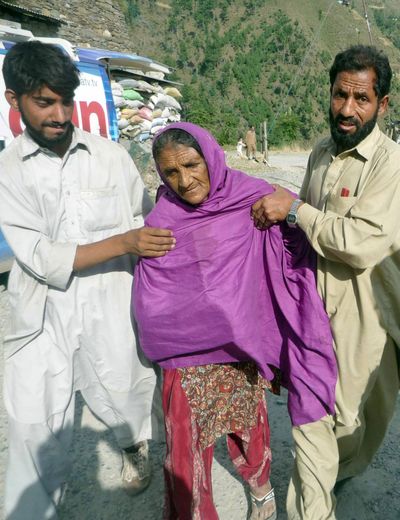Taliban waging ‘real kind of war’
Militants regroup, step up attacks

ISLAMABAD, Pakistan – At summer’s end, there were hints of optimism in the battle against Pakistan’s Islamist insurgents. The military said it had routed the Taliban from the verdant Swat Valley. A CIA missile had killed the Pakistani Taliban’s chief – so shaking the group, U.S. and Pakistani intelligence officials said, that his likely successor was killed in a duel for the top spot. Bombings slowed.
But that successor, Hakimullah Mehsud, is alive. And as a spate of mass-casualty attacks during the past week has proven, so are the Taliban.
“They have been able to regroup, and they now feel confident to take on the Pakistani state in the cities,” said Hasan-Askari Rizvi, a professor and security analyst in Lahore. “They want to demonstrate that they have the initiative in their hands, rather than Pakistani authorities. So it’s a real kind of war.”
As if to punctuate that point, the edge of the Swat Valley became the setting Monday for the fourth major attack in eight days. In a Shangla district market, an adolescent strapped with explosives detonated himself near an army convoy, killing 41 people and wounding dozens, military officials said.
The blast came two days after a stunning militant attack on the armed forces’ headquarters in Rawalpindi, which killed 23.
The surge in attacks comes at a delicate time for Pakistan’s civilian government, which is struggling to contain a public relations fiasco over conditions placed by Congress on a massive U.S. aid package. The legislation granting the aid exhorts Pakistan to do more to control its armed forces and to fight Islamist extremists – stipulations that critics, including the military, view as micromanagement by the United States.
In a statement given to the Associated Press on Monday, a Taliban spokesman called the attack on the military headquarters a “first small effort, and a present to the Pakistani and American governments.” He said it was vengeance for the killing of the group’s leader, Baitullah Mehsud, in August.
As the Taliban has regrouped in recent months, the military became the obvious target, analysts said. The Swat Valley operation buoyed the military’s image, and it has been vocal about a planned ground offensive in South Waziristan, a Taliban and al-Qaida haven along the Afghan border. Maj. Gen. Athar Abbas, a military spokesman, said “more than 80 percent” of recent attacks in Pakistan have been planned there.
The assault on the military headquarters also was planned there, he said. But he said the fighters who carried it out were from a Taliban-allied sect based in Pakistan’s Punjabi heartland.
Punjabi militant groups have long existed, but in the past, they were nurtured by intelligence agencies to focus their attacks on Pakistan’s archrival, India. Their alliance with the Pashtun-dominated Taliban indicates they are now “up for hire” and represent yet another foe, military analyst Shuja Nawaz said.